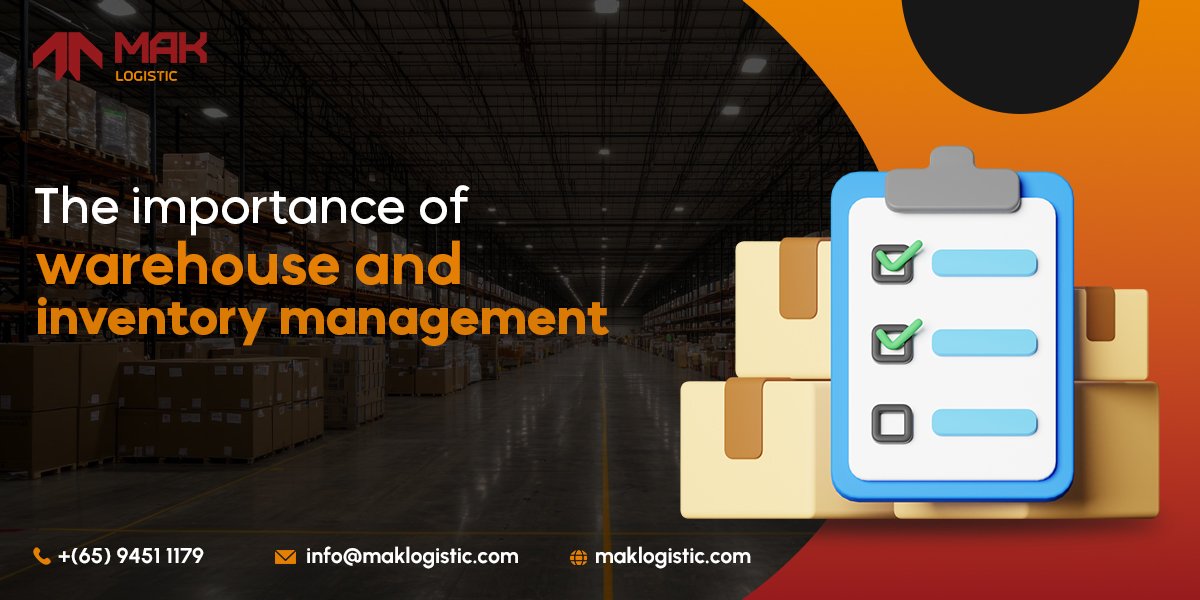
Supply chain operations are critical to business success in the logistics. Warehouses serve as the backbone of these operations, ensuring that products are stored, tracked, and delivered efficiently. According to industry reports, the global warehouse management market is projected to reach $5.6 billion by 2028, reflecting the growing demand for optimized inventory solutions. Businesses are increasingly recognizing that effective warehouse inventory management is not just about storage, it’s about streamlining operations, reducing costs, and improving customer satisfaction. Companies offering Warehouse services play a pivotal role in enabling businesses to achieve these goals, making inventory management a cornerstone of modern logistics.
What is Warehouse Inventory Management?
Warehouse inventory management is the process of overseeing and controlling the flow of goods within a warehouse, from receiving and storage to order fulfillment and shipping. It involves tracking inventory levels, managing stock locations, ensuring product accuracy, and coordinating movement across the supply chain. The primary goal is to maintain optimal inventory levels to meet customer demand without overstocking or understocking, which can lead to increased costs or lost sales. Effective inventory management integrates processes such as order tracking, stock audits, and real-time reporting, which are often supported by advanced warehouse management systems (WMS).
What is Warehouse Inventory Management?
Successful warehouse inventory management relies on several key components that work together to maintain efficiency and accuracy. These include:
Inventory Tracking
Tracking inventory involves monitoring every product in the warehouse, including incoming shipments, current stock levels, and outgoing orders. This component ensures that businesses have accurate, real-time information about their inventory, which is essential for decision-making and avoiding stockouts or overstock situations.
Storage Optimization
Efficient storage solutions maximize warehouse space while maintaining easy access to products. This includes organizing stock based on categories, demand frequency, or order priorities. Proper storage optimization reduces handling time and minimizes the risk of damage, contributing to overall operational efficiency.
Order Management
Order management ensures that inventory is allocated and shipped accurately and promptly. It integrates with inventory tracking systems to guarantee that customer orders are fulfilled without delays, errors, or shortages.
Stock Audits and Cycle Counting
Regular audits and cycle counts verify inventory accuracy, identify discrepancies, and prevent losses due to theft, damage, or misplacement. This component is crucial for maintaining trust with customers and optimizing warehouse operations.
Reporting and Analytics
Analytical tools help warehouse managers make data-driven decisions by providing insights into stock trends, demand patterns, and operational inefficiencies. Reports can highlight slow-moving items, peak seasons, and potential bottlenecks, enabling proactive management.
Technology Integration
Modern warehouses increasingly rely on technology such as barcoding, RFID systems, automated storage, and warehouse management software to streamline operations. Integration of these tools ensures faster processing, reduced human error, and real-time visibility of inventory.
Why Inventory Management is Important
Inventory management is critical for several reasons, each of which directly impacts a company’s bottom line and operational efficiency. Without proper inventory management, even the most sophisticated warehouse operations can face inefficiencies, delays, and financial setbacks. Here are the main factors:
Minimizing Costs
Overstocking inventory ties up capital, increases storage costs, and raises the risk of obsolescence. On the other hand, understocking can lead to missed sales opportunities and dissatisfied customers. Effective inventory management balances stock levels to minimize unnecessary expenses.
Customer Satisfaction
Accurate and timely order fulfillment depends on proper inventory management. Customers expect fast, error-free delivery, and businesses that fail to maintain optimal stock levels risk losing trust and loyalty.
Reducing Waste and Losses
Poor inventory management can result in product damage, spoilage, or misplacement. By implementing systematic processes, warehouses can reduce waste and prevent costly losses, contributing to sustainability and profitability.
Optimize the Operations
Streamlined inventory processes improve workflow efficiency, reduce handling time, and enhance overall warehouse productivity. Proper inventory management ensures that warehouse employees spend less time searching for products and more time fulfilling orders.
Supporting Strategic Planning
Data from inventory management systems informs procurement decisions, sales forecasting, and supply chain planning. Businesses can anticipate demand trends, prepare for peak seasons, and make informed decisions on stock replenishment.
What Are Benefits Gained From Warehouse Inventory Management?
Improved Accuracy
Accurate tracking of inventory ensures that the right products are available in the right quantities at the right time. This reduces errors in order fulfillment and enhances operational reliability.
Cost Efficiency
Optimized stock levels and reduced waste lower storage costs, minimize excess inventory, and improve cash flow. Efficient inventory management can significantly reduce unnecessary expenses in the supply chain.
Better Customer Service
Timely and accurate order fulfillment leads to higher customer satisfaction. Businesses can maintain trust, encourage repeat purchases, and strengthen their brand reputation.
Increased Productivity
Streamlined processes, organized storage, and automated tracking systems allow warehouse staff to work more efficiently. Employees spend less time searching for items, resulting in faster order processing.
Data Insights
Analytics and reporting tools provide actionable insights, helping managers forecast demand, identify trends, and make informed business decisions. This leads to smarter procurement and reduced risk of stockouts.
Enhanced Compliance
Regulatory compliance is critical for certain industries, such as pharmaceuticals or food products. Inventory management systems help track expiration dates, batch numbers, and handling procedures, ensuring adherence to industry standards.
How Technology Supports Warehouse Inventory Management
Technology plays a pivotal role in modern warehouse inventory management. Businesses leveraging Warehouse Management Services increasingly rely on digital tools to streamline operations and enhance accuracy. Key technological solutions include:
Warehouse Management Systems (WMS)
WMS platforms provide real-time visibility into inventory, automate routine tasks, and generate detailed reports. These systems integrate with other supply chain technologies, ensuring seamless communication and operational efficiency.
Barcoding and RFID Technology
Barcodes and RFID tags allow for instant identification and tracking of inventory items. Automated scanning reduces manual errors, speeds up processing, and ensures accurate data entry.
Automated Storage and Retrieval Systems (AS/RS)
Automation technologies such as AS/RS optimize storage space and improve picking efficiency. Robots can retrieve items quickly, reducing labor costs and processing time.
Data Analytics and AI
Analytics tools analyze historical data to predict demand, optimize stock levels, and identify trends. Artificial intelligence can even automate replenishment decisions, ensuring inventory is always aligned with market needs.
Mobile Solutions
Mobile applications and handheld devices enable warehouse staff to update inventory in real time, track orders on the go, and communicate efficiently across departments. By integrating technology into inventory management, warehouses not only improve efficiency but also gain a competitive advantage in today’s fast-moving market.
End of the Word
Warehouse inventory management is no longer a simple operational task, it is a strategic necessity for businesses aiming to enhance efficiency, reduce costs, and deliver superior customer service. From tracking inventory accurately to optimizing storage and leveraging technology, effective warehouse management ensures that products flow seamlessly from suppliers to customers. Businesses that invest in robust Warehouse services and Warehouse Management Services can achieve significant operational advantages, maintain high levels of customer satisfaction, and adapt to market demands with agility.
For businesses seeking the efficient warehouse solutions, MAK Logistic provides comprehensive warehouse services to optimize inventory, improve supply chain performance, and drive growth. With expertise, technology, and strategic planning, we ensures that your warehouse operations are efficient, accurate, and future-ready.


